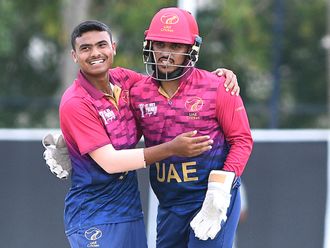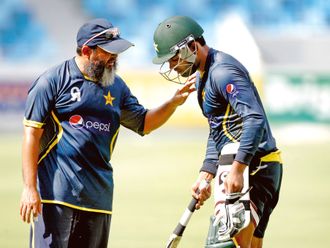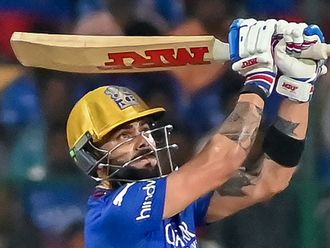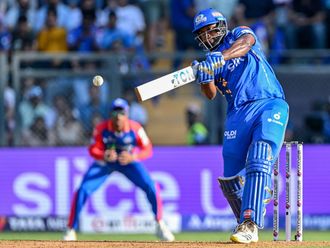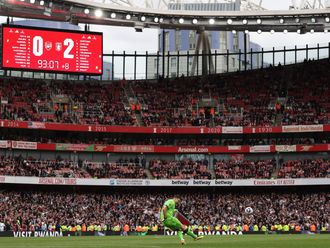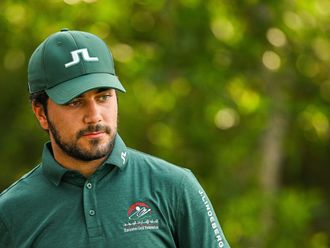Indianapolis: The mid-western city best known for its basketball and motor racing is gearing up for cricket — a game most Americans know only from British films or by surfing through international sports channels.
Indianapolis is spending $6 million (Dh22 million) to equip one of its parks with a premier cricket pitch, and space for Gaelic football, rugby, hurling and other sports mainly popular overseas.
Mayor Greg Ballard hopes his World Sports Park project will bring international exposure to Indiana’s capital and help local companies attract talented overseas workers by offering them a home for their favorite games.
“I don’t think there’s any city that’s trying to put all these pieces together, but there’s always a first-mover advantage for those who try to do it right,” he said. “These are global sports and they’ll give us more visibility in the global marketplace.”
Cities across the country are jockeying for any advantage they can find to boost economic development and sport is an easy target. The NBA, NFL and Major League Baseball pump millions into local economies in the cities that host them.
But can a sport that most Americans are unfamiliar with have the same payoff? It’s a gamble, said Bob Dorfman, a sports marketing expert at San Francisco’s Baker Street Advertising.
“How do you sell it to a public who really doesn’t understand it?” he said. “To me cricket is a fairly mystifying sport. It takes a lot to really figure it out.”
That hasn’t always been the case. The British brought cricket to the American colonies in the early 1700s and the game enjoyed a strong following until baseball, an offshoot of cricket, became the nation’s favoured game after the Civil War.
Ballard, a Republican in his second term, isn’t daunted. Indianapolis has already signed a three-year deal to host a US amateur cricket tournament and championship, starting in August 2014. That tournament will be the first such event in the US since 2011.
“When people around the world think of cricket, I want them to think of Indianapolis,” he told media in India during a trade visit in April.
Whether Indianapolis residents buy in remains to be seen. Local Democrats have criticised Ballard for moving ahead with the park upgrade at a time when the city faces a $50 million budget deficit. The project’s funding is coming from a $425 million fund set aside for infrastructure upgrades after the city sold its water and sewer utilities.
Democratic Councilman William Oliver says the money would have been better spent on new pavements and other projects that would have benefited a wider spectrum of residents.
“You can shoot craps if you’ve got the money to wager a bet, but we don’t have the money,” Oliver said.
Cricket supporters insist Ballard’s vision can become a reality.
Darren Beazley, the chief executive of the United States of America Cricket Association, said there are currently 50 cricket leagues with 1,108 teams in the US and that about 30,000 Americans — mostly immigrants from former British colonies — play cricket, which he said is the world’s second-most popular sport after football.
Beazley said his Florida-based group hopes to double the nation’s pool of cricketers within five years, in part by demonstrating the sport to schoolchildren to get them hooked, much as football was popularised a few decades ago.
“How do we get the average American kid to say, ‘You know what, this is a good, fun, safe game. I love it and I want my friends to play’? That’s the challenge,” he said.
Jatin Patel, president of the Indiana Youth Cricket Association, said students in about 240 Indiana schools have been shown the basics of the sport since his Indianapolis-based group began an outreach programme in 2010.
Patel, who moved to the US from India in 1986, said the organisation is also training teachers as cricket coaches, with about 80 certified to date. He said some schools have added after-school cricket programmes, drawing more youngsters into the game.
“They need to learn this game, that’s all it takes,” Patel said. “They’ll get used to it once they see teams playing in their backyard, their neighborhoods or their school.”
Indianapolis isn’t the first US city to try to tap into the sport’s overseas popularity. Lauderhill, Florida, opened a $5 million cricket stadium in 2007 that’s the only US cricket venue certified by the International Cricket Council. Indianapolis hopes the cricket pitch it’s building will become the nation’s second certified by the Dubai-based group.
Although Lauderhill’s venue has attracted international games, it’s been plagued by a lack of income and marquee events.
Lauderhill Mayor Richard Kaplan said his South Florida city is still working to land long-term agreements for international cricket matches, such as a game it hosted last year between the West Indies and New Zealand that he said was seen by a global television audience of about 1 billion people.
“If your goal is to try and connect with many parts of this world for potential commerce, trade and tourism, that’s a huge market to go after,” he said.



